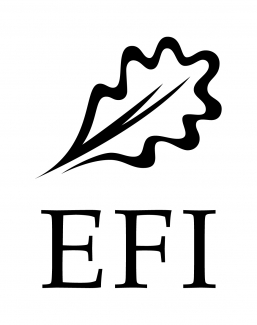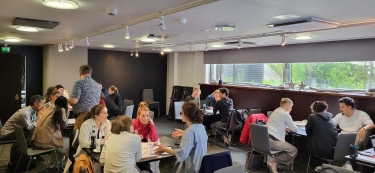Open call for participation in the Young Scientist Session on Climate-Smart Forestry

EFI is providing an opportunity, including financial support in the amount of 750 euro, for Young Scientists in the field of climate-smart forestry from EFI Associate and Affiliate member organisations to give a 10 min presentation in person on their research and participate in panel discussion during the 2022 EFI Annual Conference day.
EFI is arranging a session during the Annual Conference day on 5 October 2022 (14:45-17:00 CET) in Sant Pau, Barcelona, where the Climate Smart Forestry concept will be presented, followed by a discussion on how it relates to other forest management concepts and present the ongoing research of Young Scientists in this field in Europe.
To achieve the objectives of the Paris Climate Agreement, a significant reduction in carbon dioxide emissions is needed, as well as increased removals by carbon sinks. Forests and forestry can play an important role in this context through a wide set of measures, adapted to local circumstances.
Unfortunately, their role in mitigation and adaptation are often not considered together. In this context, Climate-Smart Forestry has been introduced as a holistic approach to guide forest management, with the aim of connecting mitigation with adaptation measures, enhancing the resilience of forest resources and ecosystem services, and meeting the needs of a growing population.
Climate-Smart Forestry builds on the concepts of sustainable forest management, with a strong focus on climate and ecosystem services. It builds on three mutually reinforcing components:
- Increasing carbon storage in forests and wood products, in conjunction with the provisioning of other ecosystem services
- Enhancing forest health and resilience through climate change adaptive forest management, and
- Using wood resources sustainably to substitute non-renewable, carbon-intensive materials.
Climate-Smart Forestry aims at a mix of these by developing spatially diverse forest management strategies that acknowledge all carbon pools, emissions and removals simultaneously to provide longer-term and larger mitigation benefits, while supporting biodiversity and other ecosystem services. Such strategies should combine measures to maintain or increase carbon stocks in forest ecosystems and wood products, and maximize substitution benefits, while taking regional conditions into account.
Read full grant call and apply here.


